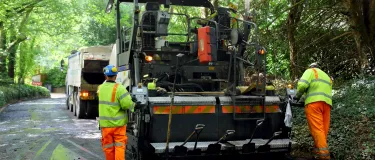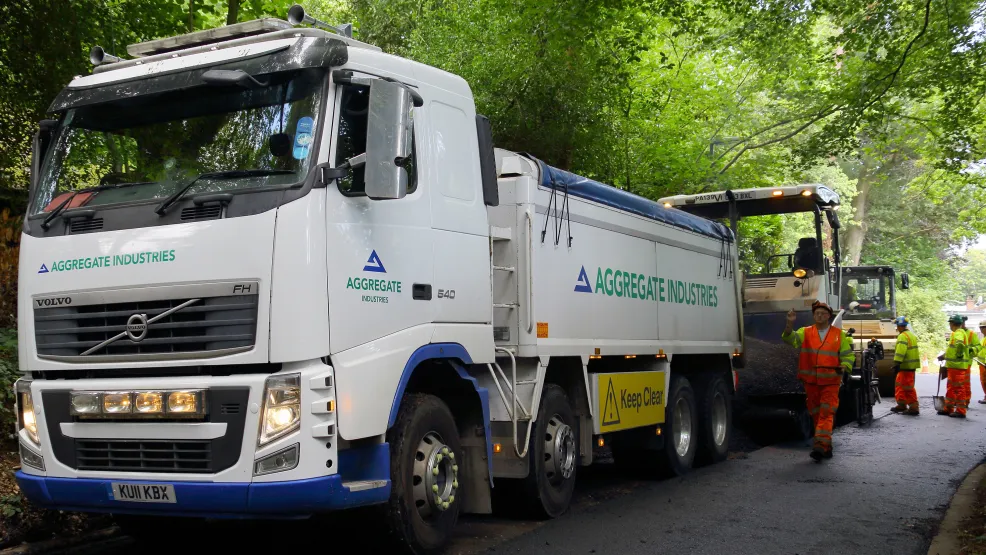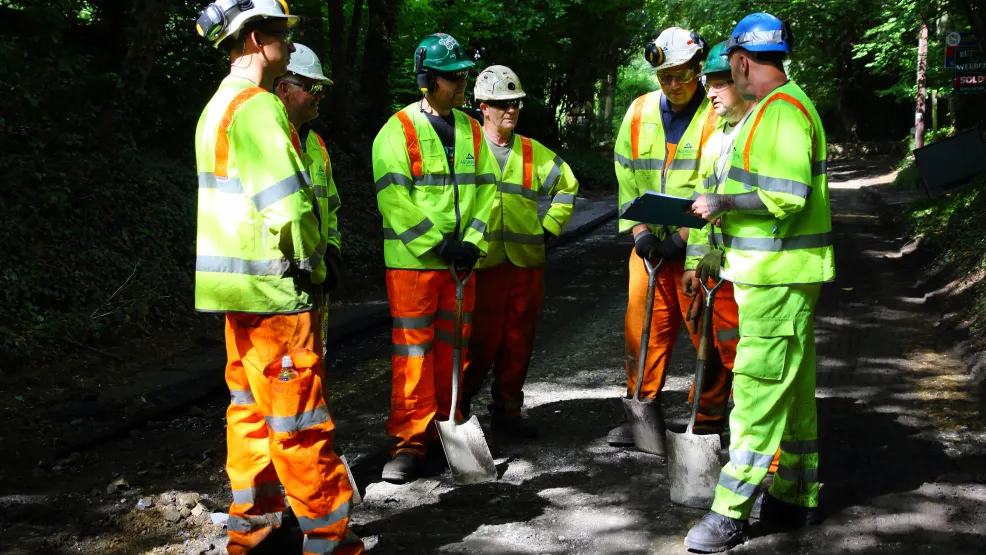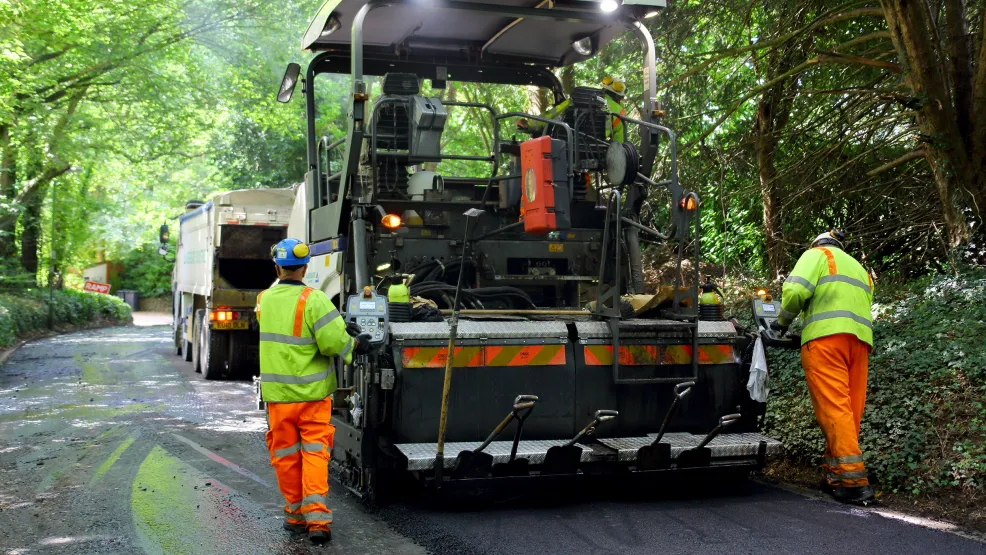Project Horizon - Surrey County Council
The Project
Project Horizon is a five year highway repair and management project for Surrey County Council (SCC) with the key objective of restoring the county’s roads to an optimal condition.
The Brief
The project was established under a unique ‘Partnership’ form of contract whereby all parties; Tier 1, 2 and 3, form a ‘one team approach’ (Project Delivery Team comprises of members from each party). The idea of this partnership agreement is to eliminate the duplication of roles within the Project Delivery Team; providing the Council and end users with the most cost effective pavement solution.
The Solution
Value Engineering – Seeking the right solution
Extensive initial consultation between SCC and local communities prioritised the roads most in need of repair. An annual programme of works was then developed by Kier. A design process and materials matrix was then developed by Kier, our team and Marshalls to identify the best repair or resurface process for each carriageway dependant on the highway condition.
The matrix provides SCC with the assurance that all parties are laying a product that is suitable; fit for purpose; CE marked and locally sourced. The principal material within the matrix is our Superflex ® mixture as this was identified as satisfying Surrey’s stated aim to make use of the latest innovations in pavement materials and technology to gain the maximum long term benefit from Project Horizon.
Superflex® meets all SCC’s requirements and has the following additional benefits:
• 10 year warranty (subject to Terms and Conditions)
• Removes the requirement for base course as part of the construction process • Savings in maintenance costs
• Offering an optimal surface for smooth drivability to the end user
• Longer life than regular SMA
Innovative Solutions
We identified joint walkthroughs as a unique opportunity to share best practice between all parties; it is also a vital tool for assisting all parties in developing realistic programmes and cost allocations. Walkthroughs provide SCC with a true reflection of the value of live works, compared to forecasted budget and programme (initial surveys may have been produced up to one year prior to the works commencing). Where additional deterioration has occurred, the works could take longer than the original allocated timeframe, therefore this process provides SCC with tools to effectively allocate budget and prioritise schemes in future years.
Joint walkthroughs have also provided an opportunity to provide advance noticing and signage. Our team had an innovative solution to spray-paint notices onto the roads and footpaths that are due to be resurfaced. This provides information on the works to the general public, residents and key stakeholders that may not have received other forms of notice. This approach has proved to be highly effective in tackling parked vehicles for example and has been adopted by Marshalls’ site teams.
We used our fleet of non-tipping trucks (NTTs) on rural schemes where there may be overhead cables or overhanging trees. Working in restricted headroom locations our NTTs are safer than a standard tipper truck due to the vehicles using a walking floor to discharge material without raising the body. Additionally NTTs have a higher carrying capacity (up to 28t, compared to 20t). This results in fewer vehicular movements leading to less noise and pollution.
To assist with programme efficiencies, core samples are taken prior to programming each scheme. Where tar is present in the lower layers of the existing pavement the depth of planing is adjusted to minimise the quantity of tar contaminated planings: for example, removing a single 70mm layer as opposed to two 40mm layers which may cut into the tar contaminated layer. This reduces the programme because the planing programme effectively halved. In addition there is a significant reduction in the quantity of tar bound planings to be managed. Planings are taken back to SCCs depots to be recycled and stored, or reused on other sites
Developing the Partnership
From the outset it was recognised that building an effective partnership was essential to success. Kier engaged an external consultancy, Temporal Consulting, to carry out a Programme for Cultural Development. As a result of this, the Project Delivery Team comes together on a quarterly basis to share best practice, provide feedback and discuss and resolve any issues. Assisted by a traffic-light rating and assessment system across all parties, it is clear from the system scores that the trust between all parties has developed, moving towards an open collaborative relationship. The extensive collaborative practices on Project Horizon have been recognised by the Highways Excellence Magazine Awards 2014; along with Kier and Marshalls we won the ‘Highway Partnership Award’.
Shared Benefits
Through collaborative practices intangible financial savings have been realised in terms of improvements to safety (shared best practice), the environment (reduction in tar-bound planings) and pavement quality (product durability and warranty).
We are joined by SCC representatives and Kier Engineers on all of the scheme walkthroughs. This has provided them with advanced knowledge and technical support on the fundamentals of pavement failure and analysis. This has become a unique and important function of our partnership, fully supporting SCC’s commitment to the national skills academy for construction strategy. This invitation has now been extended to personnel that are not directly involved in Project Horizon as part of a programme for site awareness training.
Related content
- Millbrook Road West resurfaced with low carbon SuperLow asphalt
- Aggregate Industries supports in creating the UK’s first ‘clean air’ substation
- Aggregate Industries offers green solution to A46 Warwick Bypass project
- Aggregate Industries lightens the load for Transport for London
- Queensway Tunnel, Liverpool
Project details
-
Client
Surrey County Council
-
Contractor
Kier
-
Start Date
April 2013
-
Completion Due
April 2018
-
Other information
Value of Works: £7m per annum









